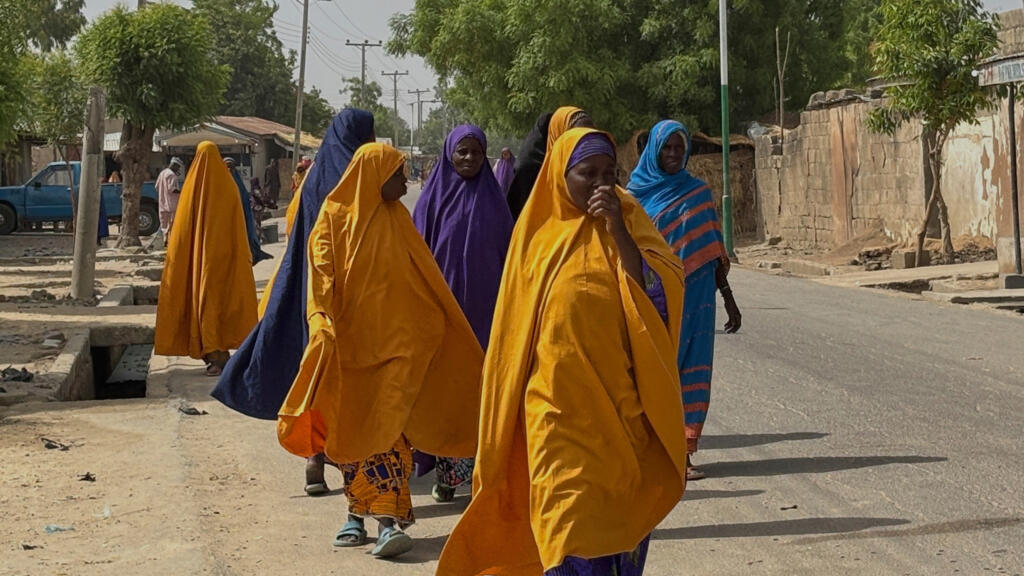
For several years, Nigerian MPs have been blocking legislation aimed at better representation for women in politics. The country's women – who make up the majority of the electorate – are pushing for a bill that would reserve at least 35 percent of seats in parliament for women.
Hundreds of women descended on the Nigerian capital, Abuja, on Monday to push for a bill that would add women-only seats in the Senate and House of Representatives.
Several African countries, from Senegal to Rwanda, have increased their number of female legislators by using quota systems.
Nigeria, which has some of the lowest numbers of women in parliament worldwide, has no such system.
It counts just four women senators out of 109, and 16 women in the 360-member House of Representatives, according to the Policy and Legal Advocacy Centre (PLAC), a local NGO.
Dubbed the "Special Seats Bill", the legislation would add one woman-only seat for both the House and the Senate in each of Nigeria's 36 states plus the Federal Capital Territory – although implementing the changes would require a constitutional amendment.
Advocates say that reserved seats would serve as a corrective to the financial barriers, entrenched gender roles and domination of politics by men that keep women out of power in Africa's most populous nation.
The women chose Monday to stage their protest as a national public hearing on constitutional reform was taking place at the National Assembly, organised by the House of Representatives Committee on Constitution Review.
Hobbled at home, Nigerian sportswomen dominate abroad
'The majority of the electorate'
"We want the legislature to work for women," said Dorothy Njemanze, one of the organisers of the protest. She said she had counted more than 1,000 demonstrators in attendance.
RFI's correspondent in Abuja spoke with Ebi Austin, a lawyer, who had also participated in a March 2022 blockade of the National Assembly. That year, parliamentarians rejected five bills aimed at improving the place of women in governance in Nigeria.
“The parliamentarians of the previous legislature refused to vote on these bills," Austin told RFI. "They betrayed us. And we promised them revenge, as we women are the majority of the electorate. And many of them were defeated. So, this time, the current elected officials are very cautious.”
Africa sees gender equality progress, but continent ‘still only halfway there'
Awodogan Idowu was leading a delegation of around 20 female students from the public university in Abuja. At 18, this was her first time participating in such a march. And for her, if parliamentarians reserve seats in parliament for women, more women will become involved in politics.
"I've seen many young women who really want to get involved in politics," she told RFI. "But they feel that men are stronger and that they don't stand a chance. By creating seats for them, we're also opening a path for them."
The demonstration ended with the delivery of signatures in support of the legislation to the House Committee.
'I want that seat'
President Bola Tinubu's minister for women's affairs, Hajiya Imaan Sulaiman-Ibrahim, has signalled support for the legislation.
However, the PLAC, in its legislative analysis, warned that constitutional amendments are "no walk in the park" – with two-thirds of the National Assembly and 24 state legislatures required to approve any changes.
Several similar attempts at creating reserved seats for women have failed in recent years.
"I want that seat, because tomorrow, I may be the one contesting [it]," Onu Ihunania, a 50-year-old civil servant, told French news agency AFP.
How French women won, and used, their right to vote in 1945
A National Assembly with more women might better focus on women's health and economic inclusion, said Nyiyam Ikyereve, 40, who had travelled several hours from Benue state to join the protest.
The lack of women's representation came to a head earlier this year when Senator Natasha Akpoti-Uduaghan was suspended from the chamber after she complained about sexual harassment.
The Senate president maintained that Akpoti-Uduaghan was suspended for a separate incident, related to an argument that erupted in the chamber over her seating arrangement.
(with AFP)







